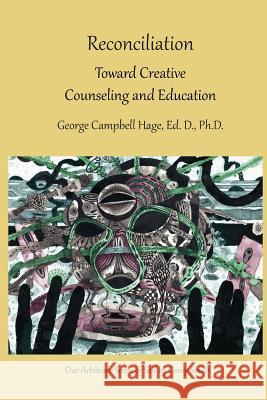Reconciliation: Toward Creative Counseling and Education » książka
Reconciliation: Toward Creative Counseling and Education
ISBN-13: 9781535363532 / Angielski / Miękka / 2016 / 130 str.
Reconciliation contains a complete Index including names and phrases as well as an extensive bibliography. The principle thesis is based on the tension of conflict as the driving force behind human behavior and culture. The human being finds the self in conflict with self, context and other. In the midst of conflict, he or she strives to find meaning by making sense out of encountered nonsense. Finding entrapment in the apparent chaos of antitheses the psyche becomes challenged and motivated to the creative acts of power. Reconciliation involves the approach of finding unity in differences rather than seeing then as antithetical. Rather than alienating, the psyche sees the other not as a stranger or enemy, but as an opportunity to learn and grow. This so-called other of enmity and estrangement principally appears as stimulus and stimuli of the opposing other in conflict. Nevertheless, this experience provides the gateway to learning, growth and maturation. At the same time, this experience provides the provocation to meaning through creativity, the substantial power in humankind that drives the psyche to the shaping of self and world as a unique composition of being. It presents the psyche and personality as the developmental ego in the struggle toward individuation and self-actualization. It strives for a harmony of self with being as well as a harmony of psychological learning theories. It advocates the high value of self-directedness in learning and maturation. Overall, this piece presents the shaping of psyche and society through an education and counseling that is ontological, wholistic, individuating, and self-actualization. It calls for the generation of the self-directed learner as the positively self-directed person who brings about a society as self-directed communion.
Zawartość książki może nie spełniać oczekiwań – reklamacje nie obejmują treści, która mogła nie być redakcyjnie ani merytorycznie opracowana.











